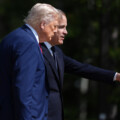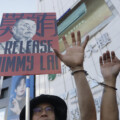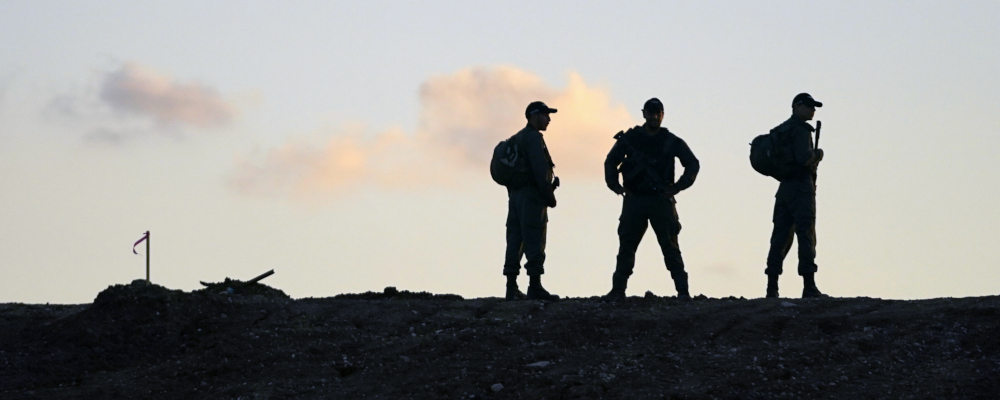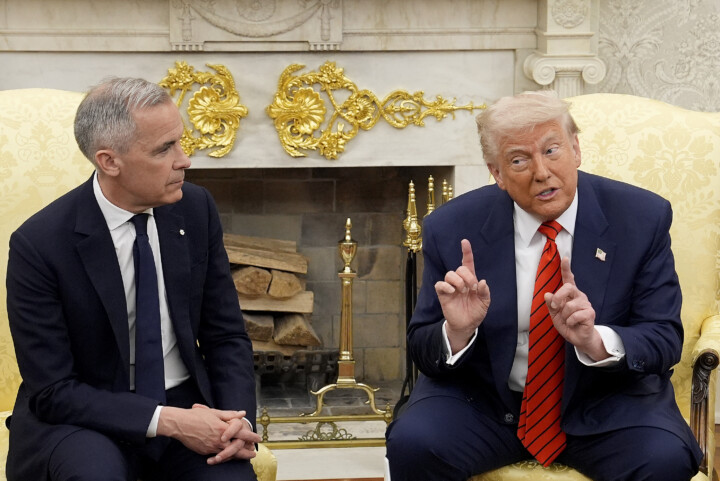It’s been two full weeks since Hamas’s horrific terrorist attacks in Israel that roused our moral outrage and precipitated the prospects of another major conflict in the Middle East.
The Hub has been active on these developments ever since we awoke that fateful morning. Readers may have noticed that most of our commentary has reflected a particular point of view. We’ve condemned Hamas, criticized those who’ve sought to justify or rationalize the attacks, and supported Israel’s right to defend itself. Some have asked about our editorial position and what has caused us to take such a strong and unequivocal stance—particularly in a moment when too many others have equivocated in the face of evil.
We thought that we’d aim to answer these questions here. Not that it matters but we don’t have any Jews among our small staff. Nor are we overly zealous Zionists. Our position isn’t even merely about Israel, or Hamas, or the Middle East for that matter. It speaks to something more fundamental—even civilizational—that we view as core to The Hub’s mission and values.
We’ve condemned the attacks and supported Israel because we believe that the events of the past two weeks represent competing conceptions of the proper aspirations for individuals, society, and the practice of politics.
Israel is a liberal democracy with the rule of law, democratic institutions, a market economy, and even within its unique context, a genuine commitment to pluralism. Its civic life is underpinned by an understanding of individual dignity and freedom that’s proven itself conducive to prosperity, stability, and ultimately human flourishing. These ideas and institutions have enabled Israel to create one of the world’s most dynamic and successful countries in just 75 years.
Hamas, which was designated a terrorist organization by the Canadian government in 2002, is the antithesis of these impulses and traits. It defines itself solely in opposition to Israel. Its ends are Israel’s destruction and its means are indiscriminate violence. Its vision for its own people is marked by an authoritarian and illiberal form of Sharia law that has involved discontinuing elections, arresting and killing its opponents, and severely constraining individual rights and freedoms—particularly for women.
These stark differences manifest themselves on multiple levels. At the individual level, they represent diametrical views about the universality of human dignity and essence of human freedom. At the level of society, they’re a contest between a free and open society versus a closed society—one closed to free expression or exchange. And at the level of politics, they stand as rival visions for the protection of human rights and the practice of pluralism.
Understood in these terms, the decision on where to stand on such a conflict is rather straightforward. We’re firmly on the side of what former Prime Minister Stephen Harper called in his 2014 speech to the Knesset “the only country in the Middle East to anchor itself to ideals of freedom, democracy, and the rule of law.”
The events of the past two weeks have done nothing to change our minds. Time hasn’t lapsed so much that we should forget that the only reason we’re even discussing these questions is because in the early hours of October 7, Hamas terrorists crossed into Southern Israel and murdered, raped, and tortured Israelis at a music festival and in their homes and ultimately took more than 200 of them (including 30 children) back to Gaza as hostages. Israelis sleeping in their beds that morning weren’t in search of war. It was thrust onto them by the brutality and destruction of their attackers.
It’s been impossible for us to empathize with those—including in our own country—who’ve sought to justify, rationalize, or even celebrate these horrific attacks. But it’s also been challenging to understand those who may have condemned them in the moment but have since returned to targeting Israel with unreasonable criticism in search of so-called “balance.”
The reaction to the explosion at a Gazan hospital this week has exposed the latter group. The instinct on the part of many journalists and politicians to attribute responsibility to Israel seemed to reflect motivated reasoning. There was an intense need to either rebalance their “scoring” of the conflict or to return to the “oppressor/oppressed” frame that has become so prevalent in progressive circles.
The Trudeau government has fallen into this trap. Its reaction to the events of the past two weeks has been frankly schizophrenic. It started off more equivocal than we would have liked in the immediate aftermath of the attacks. But it then stiffened its spine including the prime minister’s strong words alongside Conservative leader Pierre Poilievre at events in Ottawa. It now ends the week in the untenable position of granting equal credibility to the conclusions of the U.S. intelligence agencies that Israel wasn’t responsible for the explosion and Hamas who claims it was.
One can merely speculate about what would cause the government to entertain such a position. We’ll refrain from commenting here. But it strikes us as an intellectual and moral failing to hold Israel, whose institutions and values match our own, to the same standard as a designated terrorist organization. It reflects a category error based on the failure to reckon with the fundamental differences between the two.
It reminds us of a somewhat apocryphal story from the Cuban Missile Crisis. Apparently when U.S. President John Kennedy offered to show French President Charles de Gaulle intelligence that proved the presence of Soviet missiles in Cuba, he replied: “No. The word of the President of the United States is good enough for me.”
De Gaulle’s point was that the U.S. and France shared certain institutions and values that distinguished them from those with different political cultures and systems and therefore created an inherent presumption of trust. The same presumption should be extended today to Israel based on its institutions, values, and record of trustworthiness.

This of course doesn’t mean that support for Israel should be unthinking or uncritical. One may agree or disagree with or support or oppose the current Israeli government. One might even be critical of Israel’s policy towards Gaza. These are issues about which people of good faith can (and should) have spirited debates.
But as fellows in the community of liberal democratic nations, we should start with a predisposition to Israel which has built itself into a beacon of freedom, democracy, and pluralism in the Middle East’s inhospitable soil. This outlook has guided The Hub’s news and commentary over the past two weeks.
The coming weeks and months will necessarily involve tragedy and hardship for those in Israel and Gaza. There will be a need for dispassion and judgement to assess the latest developments and seek out a path to peace.
But there will also be an ongoing need for moral clarity in order to recognize the difference between a war of necessity and a war of choice, between one side that rejects international norms about warfare and the other that subjects itself to them, and between a side that targets women and children and another that aim to avoid them.
We wrote in The Hub‘s founding essay that we believe that our choices extend beyond the current moment. They not only signal to posterity something about us, but they’re ultimately what shape and drive the future. We see in the impending war between Israel and Hamas a stark contrast, and a clear choice. We choose in favour of Israel and our shared ideas and values.
Recommended for You

Mark Carney’s Team Canada (opposition parties need not apply)

The New Left and the New Right are remaking America—Canada should be paying attention

‘Immense horror’: Iranian regime marks 47 years of Islamic rule amidst mass killings of protestors

‘Speak to the injustice’: Why the Carney government must call out China’s brazen prosecution of Jimmy Lai



